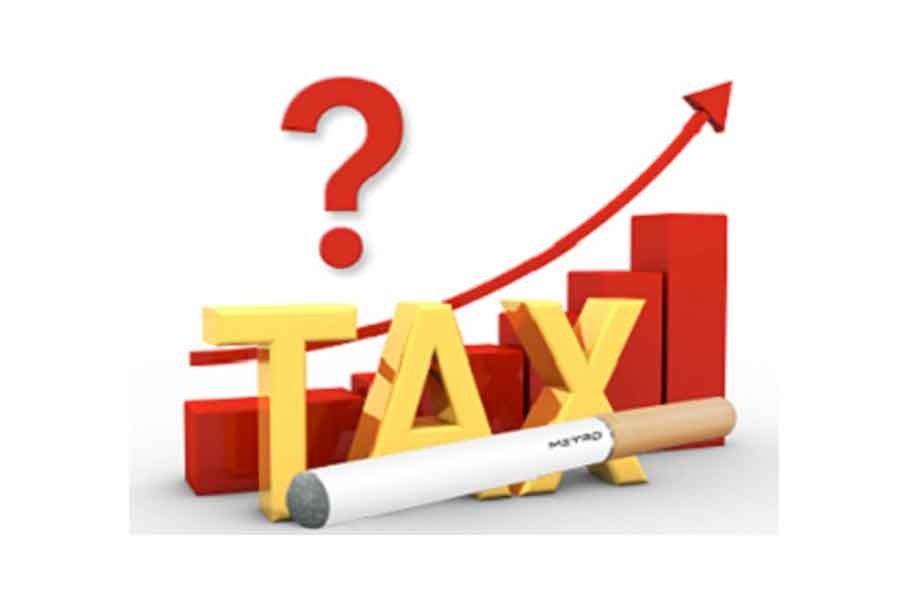The World Health Organisation (WHO) leads the global anti-tobacco movement. In a report released on the eve of the World No Tobacco Day 2017, WHO said that smoking and other tobacco use kill more than seven million people each year. It warned of the dire environmental impact of tobacco production, distribution and waste. The UN agency said tougher measures are needed to rein in tobacco use, urging countries to ban smoking in the workplace and indoor public spaces, and to outlaw marketing of tobacco products and to raise cigarette prices.
WHO chief Margaret Chan said in a statement: "Tobacco threatens us all. Tobacco exacerbates poverty, reduces economic productivity, contributes to poor household food choices, and pollutes indoor air". In the report, WHO warned that the annual death toll had jumped from four million people to seven million at the turn of the century, making tobacco the world's single biggest cause of preventable death. And the death toll is expected to keep rising with the WHO bracing for more than one billion deaths this century. By 2030, more than 80 per cent of the deaths will occur in developing countries, which have increasingly been targeted by tobacco companies seeking new markets to circumvent tightening regulation in developed nations.
Tobacco use also has economic cost. The WHO estimates that it drains more than US $1.4 trillion (1.3 trillion euros) from households and governments each year in healthcare expenditures and lost productivity. This amount is nearly two per cent of the global gross domestic product (GDP). In addition to the health and economic costs linked to smoking, the WHO report, for the first time, delves into the environmental impact of everything from tobacco production to the cigarette butts and other waste produced by smokers. "From start to finish, the tobacco life cycle is an overwhelmingly polluting and damaging process" said WHO Assistant Director-General Oleg Chestnov said.
The report details how growing tobacco often requires large quantities of fertilisers and pesticides, and it warned that tobacco farming had become the main cause of deforestation in several countries. This is largely due to the amount of wood needed for curing tobacco, with WHO estimating that one tree is needed for every 300 cigarettes produced. WHO also highlights the intensity of pollution generated during the production, transport and distribution of tobacco products. The report estimates that the industry emits nearly four million tonnes of carbon dioxide equivalent annually - the same as around three million transatlantic flights. And the WHO said waste from the process contains over 7,000 toxic chemicals that poison the environment, including human carcinogens.
Once in the hands of the consumer, tobacco smoke emissions spew thousands of tonnes of human carcinogens, toxic substances and greenhouse gases into the environment. The UN agency said that cigarette butts and other tobacco waste make up the largest number of individual pieces of litter in the world. Two-thirds of the 15 billion cigarettes sold each day are thrown on to the street or elsewhere in the environment, it said, adding that butts account for up to 40 per cent of all items collected in coastal and urban clean-ups. The WHO urged governments to take strong measures to rein in tobacco use. According to Chestnov, one of the least used, but most effective tobacco control measures is, increasing tobacco tax and prices.
Bangladesh, a country with heavy burden of tobacco-related ill health, is currently implementing several of the best buy (MPOWER) measures to reduce tobacco use. Bangladesh was the first developing country in the world to sign the WHO Framework Convention on Tobacco Control (WHO FCTC) in 2003. It has been a party to the convention since 2004. The WHO is contributing to the implementation of MPOWER measures in Bangladesh through providing technical assistance for developing tobacco control legislation in compliance with the WHO FCTC. It also provides technical and logistical support to the (i) National Tobacco Control Cell, (ii) National Board of Revenue, (iii) various professional bodies and, (iv) non-governmental organisations in their tobacco control programmes. WHO also works closely with the country to strengthen enforcement of tobacco control law, create public awareness and to impose higher taxes on all types of marketed tobacco products.
The heavy burden of tobacco-related ill health in Bangladesh is rooted in the country's high production and consumption of tobacco products. Thus Bangladesh is one of the five focus countries of the Bloomberg Initiative to Reduce Tobacco Use (BI). According to the WHO Report on the Global Tobacco Epidemic 2015, the prevalence of adult smoking - persons aged 15 years and over - in Bangladesh fell from 34.6 per cent to 20 per cent between 2000 and 2013. More than a quarter of the adult population in Bangladesh uses smokeless tobacco (SLT), contributing to high prevalence of oral cancer and other tobacco-related illnesses. The SLTs are available in various forms including Zarda, Gul, Khaini and Sada Pata. The price of SLT products is very low, making it affordable to everyone.
Bangladesh enacted a tobacco control law in 2005 and formulated regulations for its implementation in 2006. WHO provided comments and suggestions to the National Tobacco Control Cell of the Ministry of Health to remove many loopholes in the law. In 2013, the law was amended to make it more compliant with the WHO FCTC. WHO, along with other partners, supported government efforts - technically and financially - to formulate the rules for implementation of the new law and make some of the amended clauses operational.
In Bangladesh, the WHO works closely with national authorities to fully enforce the amended tobacco control law, thereby contributing positively towards protecting public health. WHO organises workshops for government and non-government stakeholders on countering tobacco industry interference, on tobacco advertising, promotion and sponsorship bans, on tobacco cessation and tobacco taxation, as well as on implementation and enforcement of smoke-free zones.
The writer is a retired Professor of Economics, BCS General Education Cadre.


